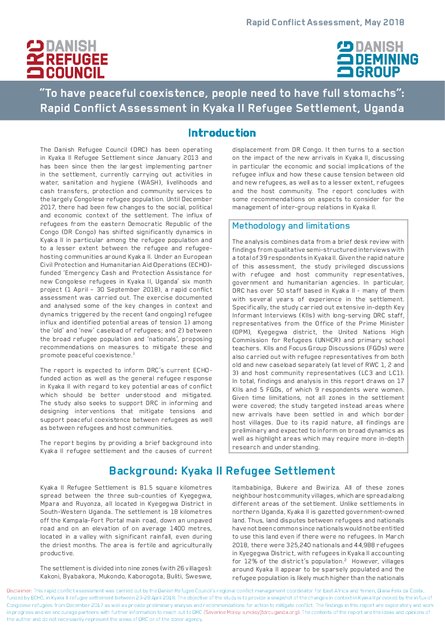
The analysis combines data from a brief desk review with findings from qualitative semi-structured interviews with a total of 39 respondents in Kyaka II. Given the rapid nature of this assessment, the study privileged discussions with refugee and host community representatives, government and humanitarian agencies. In particular, DRC has over 50 staff based in Kyaka II - many of them with several years of experience in the settlement.
Specifically, the study carried out extensive in-depth Key Informant Interviews (KIIs) with long-serving DRC staff, representatives from the Office of the Prime Minister (OPM), Kyegegwa district, the United Nations High Commission for Refugees (UNHCR) and primary school teachers. KIIs and Focus Group Discussions (FGDs) were also carried out with refugee representatives from both old and new caseload separately (at level of RWC 1, 2 and 3) and host community representatives (LC3 and LC1). In total, findings and analysis in this report draws on 17 KIIs and 5 FGDs, of which 9 respondents were women. Given time limitations, not all zones in the settlement were covered; the study targeted instead areas where new arrivals have been settled in and which border host villages. Due to its rapid nature, all findings are preliminary and expected to inform on broad dynamics as well as highlight areas which may require more in-depth research and understanding.